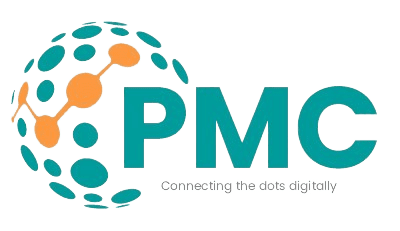
Niche marketing is a targeted approach that focuses on a specific segment of the market rather than attempting to appeal to a broad audience. This strategy involves identifying a particular group of consumers with shared characteristics, interests, or needs and tailoring products, services, and marketing efforts to meet their specific requirements. By understanding the unique preferences of a niche market, businesses can create more personalized and effective marketing messages that resonate with their target audience.
This approach is particularly beneficial for small businesses and startups with limited resources, as it allows them to compete with larger companies by concentrating on a smaller, more focused customer base. By becoming experts in their chosen niche, businesses can establish strong relationships with their customers, leading to increased loyalty and higher conversion rates. Niche marketing enables companies to position themselves as specialists in their field, potentially resulting in greater success in the marketplace.
Key Takeaways
- Niche marketing involves targeting a specific segment of the market with specialised products or services
- Identifying your target audience involves understanding their demographics, interests, and pain points
- Creating a buyer persona helps you visualise and understand your ideal customer, making it easier to tailor your marketing message
- Tailoring your marketing message involves speaking directly to the needs and desires of your target audience
- Utilising niche-specific platforms allows you to reach your target audience where they are most active
Identifying Your Target Audience
Identifying your target audience is a crucial step in niche marketing. This involves conducting thorough research to understand the demographics, behaviors, and preferences of the specific group of people you want to reach. By gathering data on your target audience, such as age, gender, income level, interests, and purchasing habits, you can create a detailed profile of your ideal customer.
This information will help you tailor your marketing efforts to effectively reach and engage with your target audience. In addition to demographic information, it’s important to consider the psychographic factors that influence your target audience’s buying decisions. This includes their values, attitudes, lifestyle choices, and personality traits.
By understanding the psychographics of your audience, you can create marketing messages that resonate with their beliefs and motivations. This deeper level of understanding will allow you to connect with your audience on a more personal level and build stronger relationships with them.
Creating a Buyer Persona
Creating a buyer persona is an essential part of niche marketing. A buyer persona is a detailed profile of your ideal customer that includes demographic information, as well as psychographic factors such as values, attitudes, and behaviours. This persona represents a fictional person who embodies the characteristics of your target audience and serves as a guide for your marketing efforts.
By creating a buyer persona, you can better understand the needs and preferences of your audience and tailor your products, services, and marketing messages to meet their specific requirements. When creating a buyer persona, it’s important to gather as much data as possible about your target audience. This can include conducting surveys, interviews, and market research to gain insights into their motivations and pain points.
By understanding what drives your audience to make purchasing decisions, you can create more effective marketing strategies that speak directly to their needs and desires. A well-defined buyer persona will help you focus your marketing efforts and ensure that you are reaching the right people with the right message.
Tailoring Your Marketing Message
Tailoring your marketing message is essential for effectively reaching and engaging with your niche audience. Once you have identified your target audience and created a buyer persona, you can use this information to craft personalised marketing messages that resonate with your audience. This involves speaking directly to the needs, desires, and pain points of your target audience in a way that is compelling and relevant to them.
When tailoring your marketing message, it’s important to use language and imagery that speaks directly to the interests and values of your niche audience. This can involve using specific terminology or references that are meaningful to your target market, as well as highlighting the unique benefits of your products or services that are most relevant to them. By demonstrating an understanding of your audience’s needs and preferences, you can build trust and credibility with them, which can lead to increased engagement and loyalty.

Utilising Niche-Specific Platforms
Utilising niche-specific platforms is an effective way to reach and engage with your target audience. These platforms are tailored to specific interests or demographics, making them an ideal place to connect with niche audiences. Whether it’s social media groups, online forums, industry-specific websites, or niche publications, these platforms provide an opportunity to share your message with a highly targeted audience.
By utilising niche-specific platforms, you can reach potential customers who are already interested in the products or services you offer. This can lead to higher engagement and conversion rates, as you are connecting with people who are more likely to be interested in what you have to offer. Additionally, these platforms provide an opportunity to build relationships with your audience by participating in discussions, sharing valuable content, and providing helpful information related to your niche.
Building Relationships with Your Audience
Building relationships with your audience is key to the success of niche marketing. By engaging with your target audience on a personal level, you can create a sense of community and loyalty around your brand. This can involve responding to comments and messages on social media, providing personalized customer service, and creating valuable content that addresses the specific needs and interests of your niche audience.
In addition to engaging with your audience online, it’s important to look for opportunities to connect with them in person. This can include attending industry events, hosting meetups or workshops, or participating in local community activities related to your niche. By building real-world connections with your audience, you can strengthen the bond between your brand and your customers and create advocates who will help spread the word about your business.
Measuring and Adjusting Your Strategy
Measuring and adjusting your niche marketing strategy is essential for ongoing success. By tracking key performance indicators such as website traffic, engagement metrics, conversion rates, and customer feedback, you can gain insights into the effectiveness of your marketing efforts. This data will help you identify areas for improvement and make informed decisions about how to adjust your strategy for better results.
In addition to quantitative data, it’s important to gather qualitative feedback from your audience through surveys, interviews, and social media interactions. This will provide valuable insights into the preferences and opinions of your target audience, allowing you to make adjustments to your marketing message and tactics based on their feedback. By continuously measuring and adjusting your strategy, you can ensure that you are effectively reaching and engaging with your niche audience and staying ahead of the competition.
In conclusion, niche marketing offers businesses an opportunity to connect with a specific segment of the market in a more personalised and meaningful way. By understanding the unique needs and preferences of their target audience, businesses can tailor their products, services, and marketing messages to effectively reach and engage with their niche market. Through careful research, creating detailed buyer personas, tailoring marketing messages, utilising niche-specific platforms, building relationships with the audience, and continuously measuring and adjusting their strategy, businesses can achieve success in niche marketing and build strong connections with their customers.
Frequently Asked Questions (FAQs)
What is niche marketing?
Niche marketing is a marketing strategy that focuses on targeting a specific segment of the market, known as a niche. This approach involves identifying the unique needs and preferences of a particular group of consumers and tailoring products or services to meet those specific needs.
Why is niche marketing important?
Niche marketing is important because it allows businesses to differentiate themselves from competitors and build a loyal customer base. By catering to a specific niche, businesses can better understand and meet the needs of their target audience, leading to increased customer satisfaction and brand loyalty.
How do businesses identify a niche market?
Businesses can identify a niche market by conducting market research to understand the demographics, behaviors, and preferences of different consumer segments. This may involve analysing customer data, conducting surveys, and studying industry trends to identify underserved or unmet needs within a specific market segment.
What are the benefits of niche marketing?
Some benefits of niche marketing include reduced competition, higher customer loyalty, increased brand recognition, and the ability to command premium prices for specialised products or services. Niche marketing also allows businesses to focus their resources more effectively and develop a deeper understanding of their target audience.
What are some examples of successful niche marketing strategies?
Examples of successful niche marketing strategies include companies that target specific demographics such as luxury fashion brands targeting high-income consumers, or businesses that cater to specific interests or hobbies such as organic food stores targeting health-conscious consumers. Other examples include niche technology products for specific industries or niche travel services for adventure enthusiasts.
